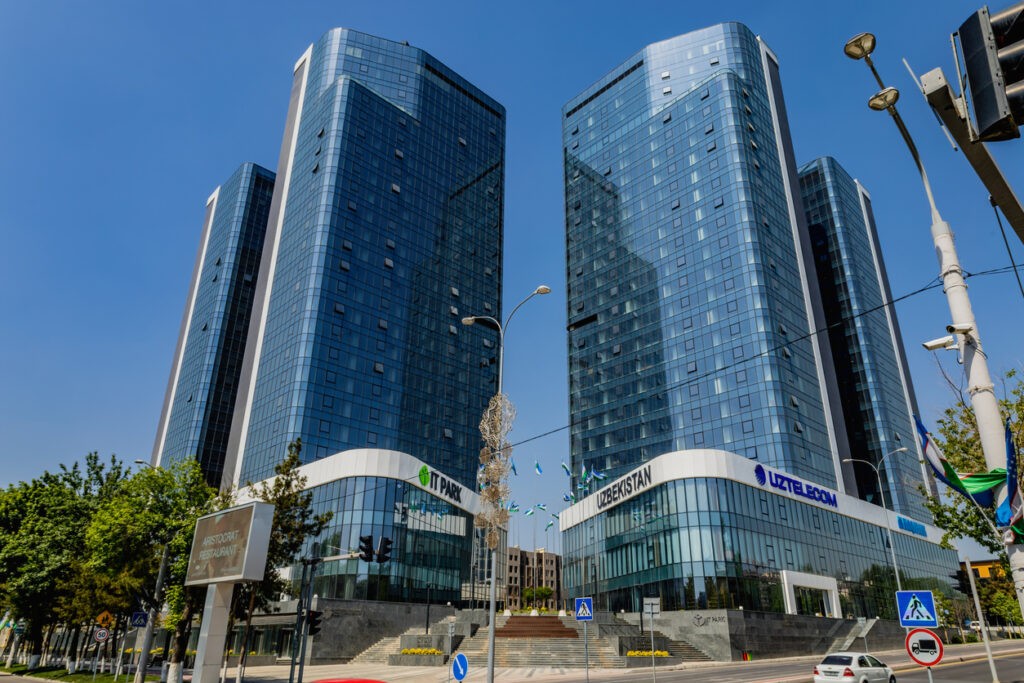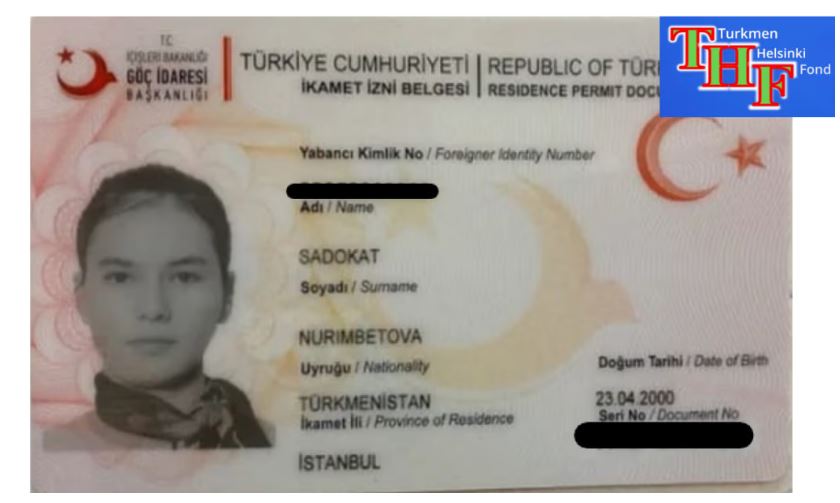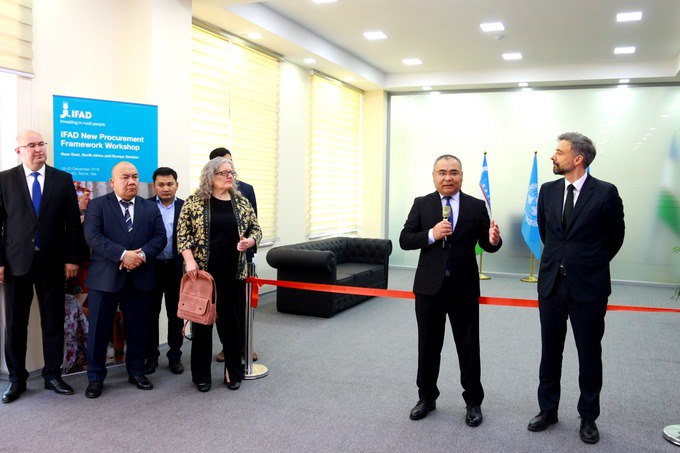BISHKEK (TCA) — Corruption hinders economic development and the attraction of foreign investment in Kyrgyzstan. Anti-corruption measures taken by the State are fragmented and uncoordinated, and staff replacement does not make anti-corruption measures more effective.
Frequent replacements of key persons in Kyrgyzstan’s state bodies create difficulties in the effective implementation of donor programs.
Does donor assistance help improve the lives of Kyrgyz citizens or it would be better to use this assistance in a different way? Heads of the UNDP, World Bank and European Union offices in Kyrgyzstan, and other donor and international organizations, as well as representatives of embassies discussed this issue with President of Kyrgyzstan Sooronbai Jeenbekov at the Ala-Archa state residence on November 1.
To avoid such questions, the judicial system and work to combat corruption should be reformed, donors believe. To work better, it is necessary to carefully coordinate donor programs with government programs, regularly share information on their funding, weaknesses and gaps. Bilateral agreements could help common understanding and vision in long-term programs. Donors are ready to start a dialogue at various levels.
President’s address
President Jeenbekov supported the issues raised by donors and development partners including the suggestion of Bolormaa Amgaabazar, the World Bank Country Manager for the Kyrgyz Republic, for co-chairing working groups on relevant areas of ministries and departments and UN Resident Co-ordinator in the Kyrgyz Republic Ozonnia Ojiello — for systematizing strategic documents and strengthening the monitoring of their execution.
President Jeenbekov called on government agencies to resolve all issues raised by the donor community without excessive bureaucracy and red tape.
“We need to reduce duplicate and non-funded programs and strategies. In the work of state bodies, we will adhere to the principles of continuity and stability, preservation of institutional memory and selection of professional staff,” he said.
The President expressed hope that international partners would provide possible assistance in the implementation of ambitious goals pursued by Kyrgyzstan.
National Strategy 2040
After the completion of all editorial amendments, the National Strategy-2040 has been approved by a presidential decree. “There is now an official strategic document setting the long-term and medium-term guidelines for the country’s development,” President Jeenbekov said.
He thanked the donor community and development partners for the assistance, suggestions and comments on Strategy 2040. The proposals received helped make the document more comprehensive and high-quality, he added.
The State will focus mainly on financial support for the Strategy’s implementation, the stages of which consist of several medium-term periods.
The first Strategy’s stage outlines development priorities until 2023.
Judicial reform
The establishment of a fair judiciary system is among the main tasks for the next five years. It should guarantee citizens’ confidence in their future, political stability, economic development and investors’ confidence in the inviolability of private property.
“We have adopted a good package of legislation and many of the donors took part in its development. The challenge now is to implement these codes and laws. It is planned to create an automated register of crimes and misdemeanors, a probation institution, digitalization of the judicial and law enforcement systems, and create the necessary infrastructure,” President Jeenbekov said.
To increase the confidence of citizens and businesses in the judicial system, transparency and accountability of the courts should be fully implemented by 2023. This will be done through public access, publication of draft rulings and other judicial decisions of public importance. Online broadcasts of court hearings will be launched which will make the decisions of judges impartial and will increase people’s confidence in the judicial branch of government, the President added.
Economy
Special attention will be paid to the economic development. Energy, manufacturing, mining, light industry, agriculture and processing of agricultural products, and tourism will be the key priorities until 2023.
To increase the country’s export potential, it is necessary to develop the agro-industrial sector. Compliance with modern environmental requirements, introduction of new storage technologies, processing of agricultural products, and development of logistics will be the priorities of economic policy.
In the energy sector, large-scale reconstruction and modernization of the existing generating facilities is planned. The Government intends to develop the energy infrastructure, including the implementation of the CASA-1000 project, which will start functioning in 2021.
It is planned to launch the construction of the China—Kyrgyzstan—Uzbekistan railway, Kambarata-1 hydropower plant, the Upper Naryn cascade of hydropower plants, and the Kyrgyzstan—China gas pipeline.
Information technologies
It is planned to introduce information technologies in all spheres of society, sectors of the economy, and state bodies.
The Tunduk system will unite all government structures into a single information network, which will allow for electronic interaction and document flow between government bodies, local governments, government agencies and enterprises. The Tunduk system will facilitate accessibility in the provision of state and municipal services to the population, regardless of the region of residence.
Regional development
In January, President Jeenbekov declared 2018 the Year of Regional Development. The development of regions will remain a priority for the next five years, Jeenbekov said.
Improving the infrastructure of human settlements will be the priority of the regional policy. It is also planned to launch an infrastructure digitization program connecting the regions. The Mortgage Lending Program will be expanded, focusing on improvement of the living conditions of the population in the regions.
Access to clean drinking water
In the next five years, the task is to ensure access to clean drinking water in all settlements of the country. The implementation of the Taza Suu (Clean Drinking Water) project is important, the President said.
It is planned to construct and rehabilitate the water supply system in 653 villages, including the construction and rehabilitation of the water supply and drainage system in 26 regional centers and 22 cities.
To modernize the irrigation networks and create new jobs in rural areas, the State Irrigation Development Program will be implemented.
Quality of life
To ensure the quality of life of each person, regardless of his or her place of residence, the Strategy 2040 includes priorities for improving healthcare systems, education and social protection.
In the coming years, the State sets the task of strengthening primary healthcare services, including first emergency care. Regardless of where they live, citizens will have access to healthcare. Digital technologies, telemedicine and online counseling will be introduced.
For the development of regions, their management system will be revised. A working group consisting of representatives from all stakeholders has already begun developing a reform roadmap.
Climate change
Kyrgyzstan has committed itself within the framework of the UN Sustainable Development Agenda until 2030, the Paris Agreement on Climate Change and other documents in the field of human rights, Kyrgyz President said.
The 17 UN Sustainable Development Goals have been involved in the Strategy 2040. The Kyrgyz Republic is committed to moving away from environmentally harmful investment projects, he added.
The country intends to intensify processes to attract resources of the Green Climate Fund for the introduction of green technologies, as well as adaptation to climate change and the prevention of emergency situations.
Partners’ support needed
The State intends to implement the Strategy consistently, stimulating internal growth potential and using external funding. But Kyrgyzstan’s own efforts are not enough at this stage. “To meet the development challenges, we need the support of our partners,” the Kyrgyz President said.
He urged all parties, including international organizations and partner countries, and government agencies, to optimize the adoption of programs and projects and more efficiently use financial resources.
The President proposed to intensify the dialogue platform on the coordination of donor assistance on a regular basis.
The Secretariat of the National Strategic Development Council will implement this task. The Chief of the President’s Administration will supervise the Secretariat as an institution responsible for the country’s development, Jeenbekov said.
To discuss ongoing and planned projects and confirm all indicators of efficiency, effectiveness and deadlines, he proposed to hold a donor conference in the spring of 2019.








